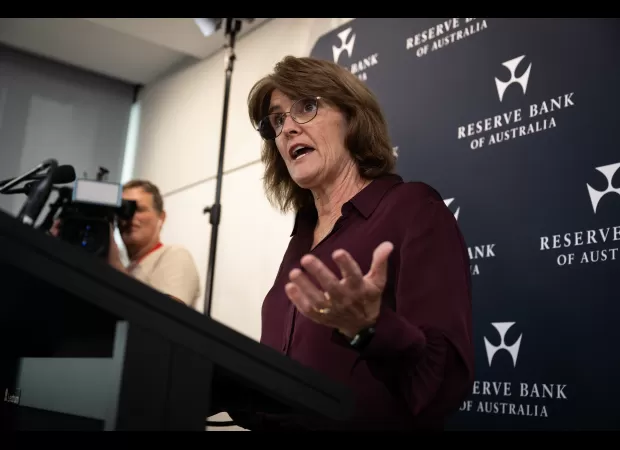Can the central bank use the power of intimidation to control rising prices?
Households pay attention to the RBA's words.

The Reserve Bank of Australia has announced that it does not foresee the need to increase interest rates in the near future. However, it remains a possibility and citizens should be prepared for such an eventuality. This was the main message conveyed by Governor Michele Bullock during her press conference yesterday, after the board decided to maintain rates at 4.35 per cent. Bullock also revealed that the topic of a 14th rate hike was discussed, but ultimately dismissed.
During the media conference, Bullock stated that the board does not believe there is a pressing need to tighten monetary policy, but it cannot be completely ruled out. She emphasized that if inflation continues to rise significantly above their expectations, the RBA will not hesitate to implement another rate hike. The threat of a potential 14th hike was a prominent topic throughout her speech, as Bullock stressed the board's commitment to monitoring the situation closely and taking action if necessary. She acknowledged that this may be a difficult time for some citizens, but reminded them that rising inflation is the main cause of their struggles, not just interest rates.
However, Bullock also mentioned that the RBA has other tools at its disposal besides interest rates. This was echoed by economist Harry Murphy Cruise, who noted that the RBA's statements hold a lot of weight and can influence household spending. He also pointed out that the board's slightly more hawkish tone this month suggests that they are keeping the option of a future rate hike open. This serves as a warning to the public and may be enough to reduce demand without actually raising rates.
Inflation is expected to remain high for a longer period than previously anticipated. The RBA's forecasts predict an annual rate of up to 3.8 per cent, which is a significant increase from a few months ago. Bullock attributed this to rising petrol prices, but also mentioned other factors such as service inflation, insurance premiums, and education fees. Murphy Cruise also commented on the difficulty of bringing down inflation, particularly in the service sector. He noted that the progress made so far is partly due to temporary government rebates that will eventually expire.
As a result of these factors, Moody's Analytics has revised its forecast for when inflation will return to its target range. They now predict it will happen in June 2025, while the RBA believes it will take until the end of that year. However, in terms of interest rates, it is uncertain when the next change will occur. The threat of a potential rate hike may be enough to keep inflation in check for the time being.






